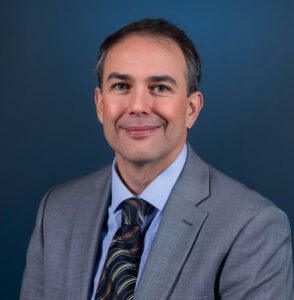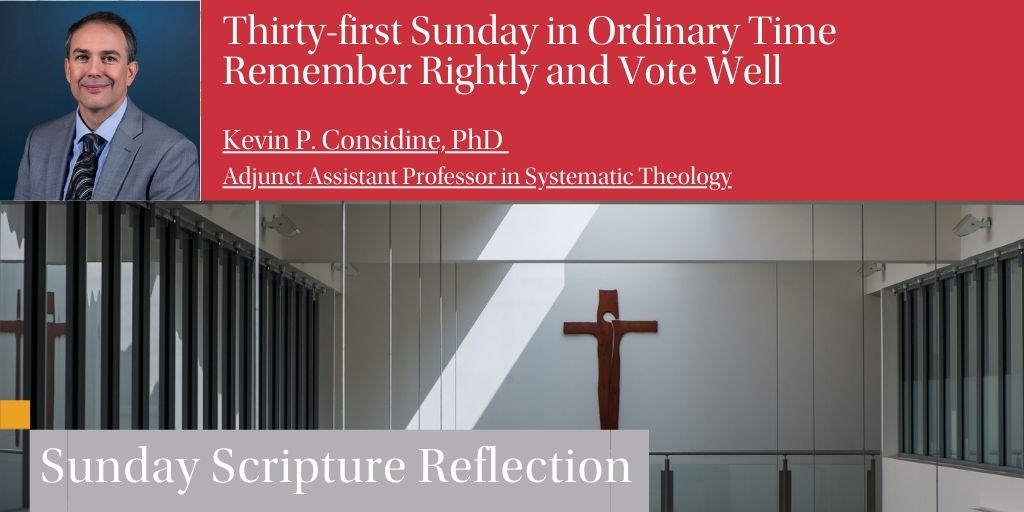
Readings:
Dt 6:2-6
Ps 18:2-3, 3-4, 47, 51
Heb 7:23-28
Mk 12:28b-34
Years ago, when I taught high school I would tell my students that the feasts of All Saints Day and All Souls Day were among the most important Catholic holidays. Lent, Holy Week, and the Triduum? Absolutely essential. Advent and Christmas? Very important. But these particular holy days at the beginning of November, that coincide with the celebration of Dia de los Muertos, are essential as well.
That’s because memory matters. And these holy days call us to remember rightly.
Memory binds communities and societies together, not to mention our individual psyches within these communities. Important life events, people, places, and sensations act as roots that anchor us, connect us to others, and nourish us to grow. When we forget, prioritize the wrong details, or are forced into amnesia, we lose these anchors and connections. We stagnate and wither.
Memory matters for human flourishing. In the first reading, Moses calls the people to remember the Lord who liberated them from enslavement in Egypt and who was now calling them to become a new people in the desert. To trust that this One God who has shown them their own belovedness offers new life through the laws of the covenant that irrevocably binds the people to the divine and the divine to the people. Centuries later, the psalmist offers imagery to help the people remember this God rightly: rock, fortress, refuge, savior. They also remind us of the best response to God’s saving presence: “I will love you Lord, with all my strength”.
The reading from the Letter to the Hebrews tries to reframe the early church’s traumatic memory of Jesus’ torture and execution through the language of priesthood, sacrifice, and holiness. It tries to flip the script on the memory of crucifixion from a horrifying exercise of imperial terrorism to a sanctifying event for the benefit of the many. Then, Mark’s Gospel testifies to Jesus as the living memory of God’s drawing near; as a teacher who evokes right remembering in others that will lead to the realization of God’s just reign. Memory is communal and Jesus intuits that right remembering builds beloved community.
There is an election on Tuesday. An election with much at stake. As Catholics, we should be grateful that we have passed through these holy days as preparation. All Saints Day reminds us of the flawed, holy ancestors who now are with God and how they have shown paths to realizing God’s kingdom here on earth. All Souls Day brings us closer to our immediate ancestors through the memory of their lives of love and joy, laughter and tears, triumphs and mistakes. They have much to teach us about being co-workers with God’s Spirit in difficult times.
If we listen, I think they are reminding us:
As a people, who has God called us to be? Christ’s Body on earth that repairs and restores. As co-bearers of the image and likeness of God, what does God’s Spirit call us to do for each other? Show Christ’s love to others unconditionally and labor for God’s reign here and now. And one way we testify to these is with our voting and our civic engagement.
Finally, I think they ask us, how will we be remembered when so much was at stake? How did we try to co-create a more just, humane, and sustainable future? Especially for our children, children’s children, and the many generations yet to come who will inherit the work of our hands.
Let us listen to the saints and the ancestors so we vote well and become civically engaged beyond the election for the common good. Let the next generation’s memories of our actions in these times be a source of pride and joy, not of shame and sorrow. Let them know that despite our flaws and imperfections we tried to call forth the best possible future for everyone.
And, in that way, we were faithful to the living memory of Jesus.
Kevin P. Considine, PhD
Adjunct Assistant Professor in Systematic Theology
